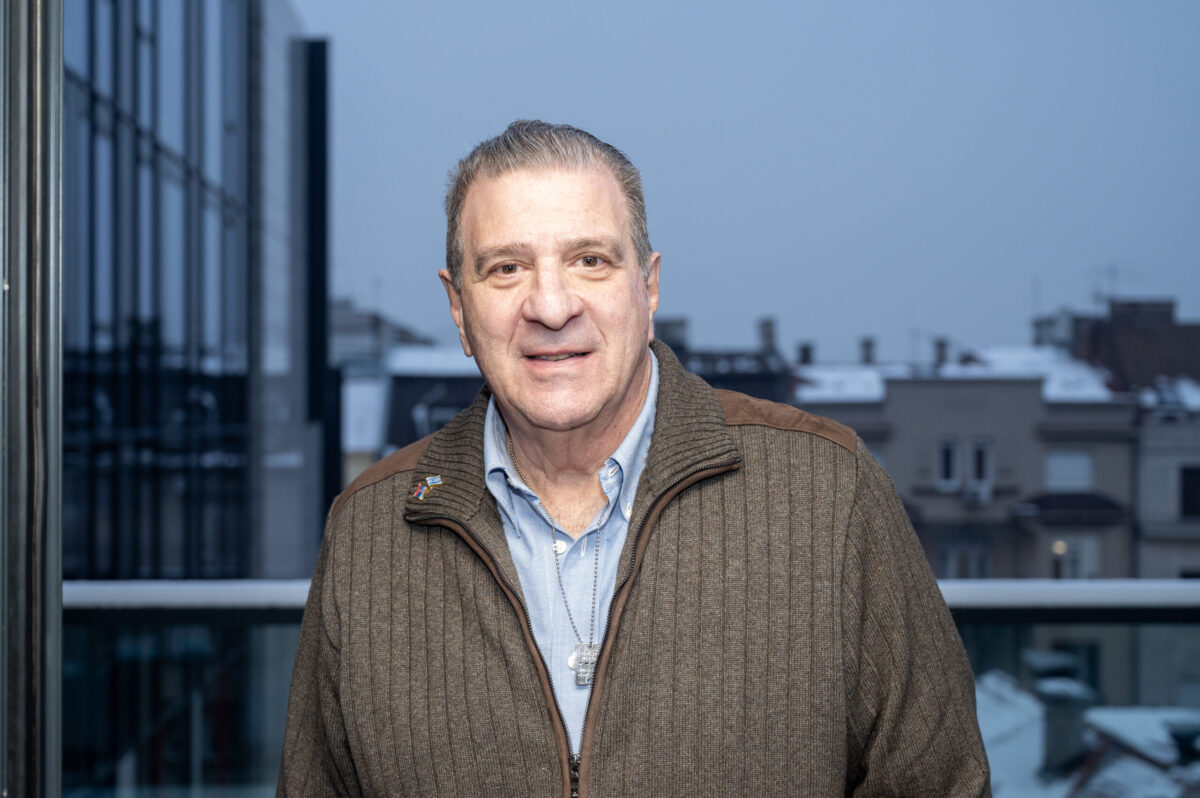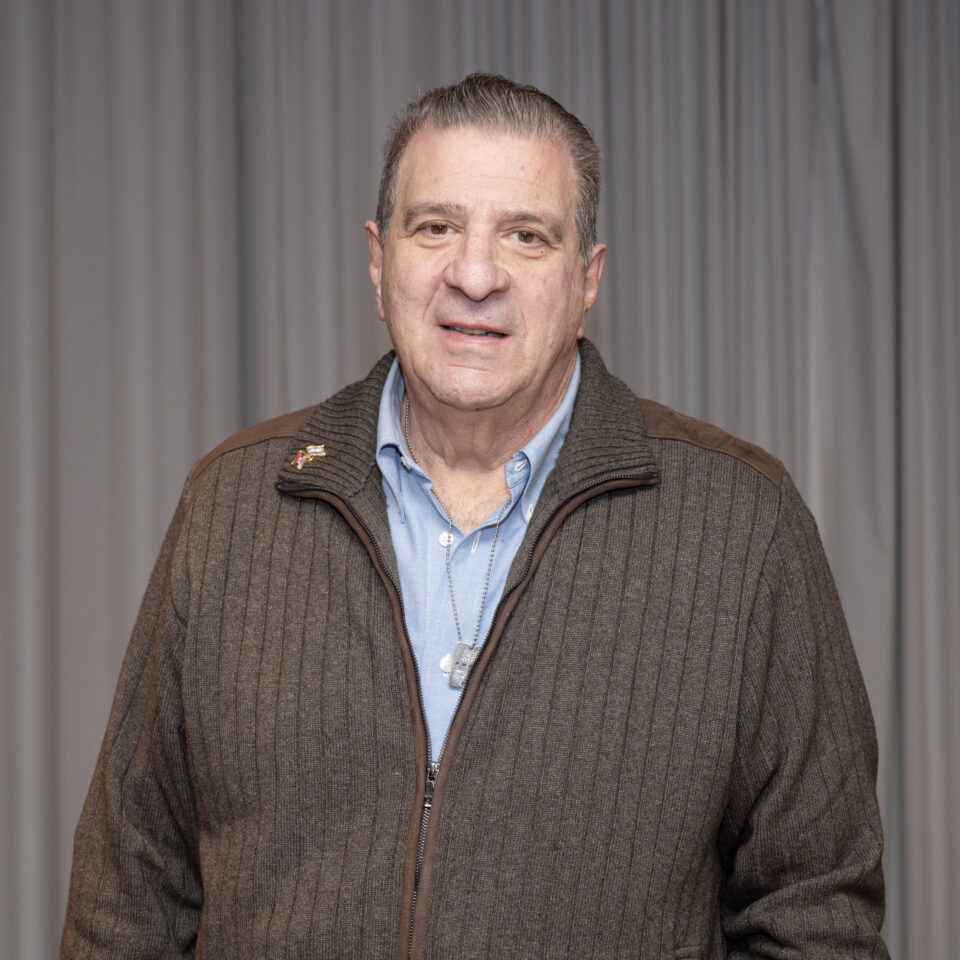Exploring the Potential of Serbia-Israel Collaborations

In this exclusive interview, we engage with Mr. Oudi Recanati, a distinguished figure in international finance and one of the owners of Maccabi Tel Aviv. Mr. Recanati shares his unique insights on the evolving partnership between Serbia and Israel, with a focus on technology and academic collaborations.
Considering your extensive experience in international finance and investment, how do you perceive the current state of business relations between Serbia and Israel, and where do you see the most promising areas for future collaboration?
I’m not completely familiar with the numbers between the two countries. I do see today that there’s a lot more cooperation. I understand that Israel invests quite a bit here in real estate and has been building, so there is cooperation and quite a bit of cooperation going on. I see the future more in cooperation on the technology side, the high-tech side, and the academic side. I met today with the Minister of Science Ms Begović, who made a wonderful impression on me. They made a presentation showing me about the new centre that they’re building, that the government is building, to put together, I’d say, a lot of biofields together, and to bring to Serbia an international flavour, bringing in 1,000 PhDs, about 3,000, 4,000 students, and about another 1,500 employees who would work in other things. As far as that’s concerned, I am also the Chancellor of the University, Reichman University in Israel, and I was chairman of it before. We helped establish it. We have a school, it’s called the Rafael Recanati, my father’s name, Rafael Recanati International School, where we have from 90 countries, we have people coming in. We also have Serbs, who study in English and who get a bachelor’s degree. The university has been around for 27 years. We are now establishing a school of medicine in my mother’s name. My mother passed away a few years ago. The School of Medicine is going to be the first school of medicine in a private university. We are also involved in a private hospital called Raphael in Israel. It’s a private hospital that mainly deals in surgeries, but very advanced surgeries, where the idea is not to keep a patient for two weeks in the hospital. For instance, to replace a knee, you come in in the morning, they replace the knee, and by afternoon, four or five o’clock, you go home. So, it’s new concepts and new ways of doing things, and it’s a state-of-the-art hospital. So, we spoke about the possibility of Serbian and Israeli cooperation, one, in the academic field, and to see what we could do together. We have in that school also, for instance, a lot of research. We have a centre of research, brain research, which is one of the most advanced in the world, with a professor by the name of Amir Amedi, who is one of the top people in the world. We were talking about the possibility that we will try to join forces to see how we can work together with a new project and see how we can contribute and do things together.
Considering the ongoing conflict between Israel and Hamas, what are the most significant challenges and adaptations Israeli businesses have faced, particularly in sectors where you have expertise?
Let’s start that firstly, naturally, it interrupted the economy terribly. We have about 300,000 reservists who were called up. We also have about close to 160 to 200,000 Israeli refugees who left their homes and went to live in hotels because they were too close to the border in the south and in the north. So, this also interrupted their businesses. It interrupted their life, and their livelihood, which made it very difficult for them to function. Now, also, when you have so many reservists called up, naturally, those who work in companies or have their businesses are also affected quite a bit. There has been a reduction of close to 35% in consumption in Israel. I’m saying not food products and things like that, but also in food products, but in general, 35% more or less. The same applies to a certain extent to the technology industry. But the technology industry, I must say, was hit much less than the rest of the economy, because first, you slow down a little bit. There’s no question that when the war finishes, people will return home, and it’ll take time to recover from all of this. It’s not going to be a one-day finish and that’s it, everything is fine. A lot of small businesses will be left out of business, such as restaurants. In reality, nobody wants to go out. People, you know, stay more at home. Nobody’s in a rejoiceful mood to go and enjoy themselves. A lot of industries are going to be affected, but we’ve seen Israel is a very resilient people in general. Israelis jump back into things quite quickly. And, you know, the same thing happened after COVID, although COVID was a world story. But COVID after that, it’s, oh, it’ll take an awfully long time to get back. Didn’t take an awfully long time. We got back. We have to rebuild. Sure. Just to give you an example, Maccabi Tel Aviv has three doctors. Each time one comes with us on the trips. The three of them had to stay in Israel working at the hospitals. So, none of them came. Now they were released, and others were taken. So, they’ll be now they’ll be coming here again. But it interrupts life terribly. And the thing is, is how fast we’re going to rebound, and I think it’ll be fast. Just let’s hope that this thing finishes relatively quickly. I mean, relatively, we know it’s going to go on for months, but when it does what Israel is trying to do at this point is to change between the reservists. In other words, to let those who have businesses go out, others to come in. And in that way, the businesses will be affected, but much less.
The thing is, is how fast we’re going to rebound, and I think it’ll be fast
You mentioned the tech industry is less effective. But do you think that they could shift their businesses from Israel to another country like maybe Serbia and do you think other industries also can do something like that?
Look, in general, I know that there’s a lot of cooperation going on and there’s no question that, let’s say, if we can’t manufacture something because we don’t have the manpower to do it, etc., it goes out. Now, Serbia definitely is a good partner. So, I mean, there is cooperation today already, and I think, it will be more and not less.
How can Israel control the challenges posed by the current geopolitical situation to foster economic resilience or open new avenues for trade and investment? Is it possible at all?
I doubt that very much. I think that what we are good at, we continue to be good at. In other words, more in technology and high-tech situations and things of that type. Tourism is dead for the moment. And unfortunately, all the hotels are full of refugees, Israeli refugees. I don’t think that we’re going to be shifting and looking in new directions. Things can also always happen. It’s a question of possibilities. We’re working more with the Arab countries, as you know, with the Emirates today. We have a good relationship. The same applies to other countries in the region. And it seems that in the not-too-far future, we’ll have a good relationship also with Saudi Arabia. When that happens, there will be new venues of cooperation. I’m not sure exactly in which way, but there will be.
I think today you’re also going into new realms and new things that have to do with academics and technology
Having spent time in Belgrade with Maccabi Tel Aviv Basketball Club, what are your impressions of the city’s cultural and sports environment? How does it compare to Tel Aviv?
Serbia is a basketball country and above all, Israel is more of a football country. But Maccabi Tel Aviv, you know, we have a stadium of eleven thousand and we’re full all the time in general when we play there. I think it’s comparable. I think that there’s a possibility to compare the way it is. I don’t know enough about the social culture of life in Serbia or Belgrade. But I do know that we’ve been playing against Serbian teams for many years, and there’s a rapport. There is a good relationship. I think that it’s the type of economy that is similar to a certain extent where naturally each of us tries to do a little bit more with what we have. Also, I think today you’re also going into new realms and new things that have to do with academics and technology.
Is there any possibility of making a parallel between Serbian people and Israeli people, and how they face difficult challenges upon?
There’s a similarity. The only thing that I’ll tell you is, you know, while we’re sitting here, my phone is off. But I’m sure if I open my phone, I’ll see that there’s a red alert and it’ll say there the missiles that fell on Israel during the time we’re talking. That’s something that we live with, not that we’ve accepted. So, I think the situation is similar, as you said, because of the question of how we’re portrayed in the press. The media can turn things around 180 degrees, and in the end, you don’t know what to believe. Hamas are very strong with fake news, and they come out with it all the time. The only thing is with us, it’s an ongoing thing that’s been ongoing for the past almost 20 years.
